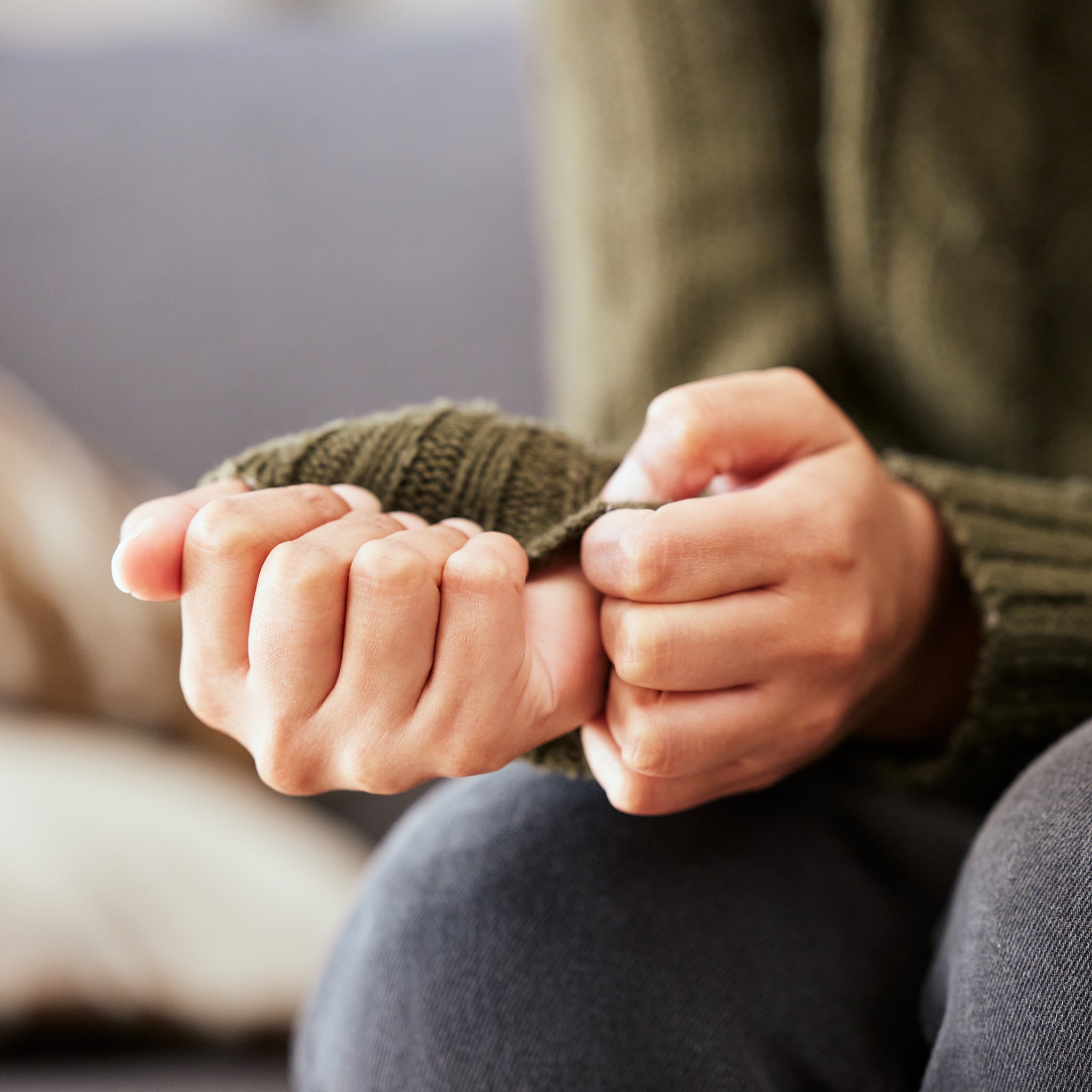
HOW TO TELL BETWEEN A PANIC ATTACK AND AN ANXIETY ATTACK, ACCORDING TO EXPERTS
You might hear people say they had a panic attack - and this very well could be the case. But there's also a chance that what they're really referring to is an anxiety attack. The terms are often used interchangeably, but there are marked differences that may be useful for accuracy, clarity, and proper mental health care. To help you distinguish between the two, we asked mental health professionals how to tell a panic attack apart from an anxiety attack (and what to do about both). If you're unsure if you had (or are having) a panic attack or an anxiety attack, see their advice below.
Experts Featured in This Article:
Amanda Spray, PhD, ABPP, is a psychologist and clinical associate professor at New York University's Grossman School of Medicine.
Vania Manipod, DO, is a psychiatrist and chief medical officer for the Murror app.
Anxiety Attacks Versus Panic Attacks
According to Amanda Spray, PhD, ABPP, anxiety attacks are what we frequently see in media and pop culture. One major difference between panic and anxiety attacks is that - while panic attacks are in the DSM-5 (what mental health professionals use to diagnose conditions) - anxiety attacks are not. This doesn't make anxiety any less legitimate; it just means anxiety attacks are not technically diagnosable. Vania Manipod, DO, adds that many of her patients use the term "anxiety attack" interchangeably with "panic attack," but anxiety attacks are often not as severe. Dr. Manipod says anxiety attacks tend to dissipate, and usually don't interfere with your day; she calls them a "near panic attack."
Panic Attack Symptoms
Dr. Spray and Dr. Manipod agree that there's often no trigger for a panic attack, which means you typically don't see it coming. A panic attack might feel like a "sudden rush of physical sensations that people describe as coming out of nowhere," Dr. Spray says. The DSM-5 describes a panic attack as "an abrupt surge of intense fear or intense discomfort that reaches a peak within minutes." The following are a list of panic attack symptoms, as listed in the DSM-5 or confirmed by the experts we spoke to. Note that for an official diagnosis, four or more of the following must occur:
Heart palpitations, pounding or accelerated heart rate, chest pains, and shortness of breath
Chills, even if you're not cold
Trembling or shaking
Sweating or heat sensations
Feeling of choking
Fear of losing control or fear of dying
Nausea or abdominal distress
Feeling dizzy, unsteady, or faint
Paresthesias (numbness or tingling sensation)
Derealization (feelings of unreality) or depersonalization (being detached from oneself)
Anxiety Attacks Versus Anxiety Disorders
Dr. Manipod says it's normal for people to experience occasional anxiety, but if it starts interfering with your daily life, then it becomes a diagnosable anxiety disorder. There are many different kinds of anxiety disorders, including social anxiety, general anxiety, and various phobias. Something like generalized anxiety disorder, which is more persistent, "can be just as hard to cope with as recurrent panic attacks," Dr. Spray notes. In fact, it's very possible to have an anxiety disorder and also get panic attacks. Symptoms of generalized anxiety disorder include:
Excessive worry
Muscle tension
Restlessness
Fatigue
Difficulty concentrating
Difficulty falling asleep or sleeping
It's important to remember that you can still have a sporadic anxiety attack without an anxiety disorder. Still, even if your anxiety doesn't interfere with daily life, it may be worth addressing with a mental health professional.
Panic Attacks Versus Panic Disorders
"Anytime someone gets a diagnosis of a disorder, it's because it's interfering with their daily function," Dr. Manipod says. She describes a panic disorder as a panic attack followed by the consistent fear of having another one. This fear usually persists for over a month, and has a negative impact on your life, Dr. Manipod says. Dr. Spray adds that with panic disorders, it's common for people to avoid certain situations due to the fear of having another attack. You can also have panic attacks in the context of other disorders, post-traumatic stress disorder (PTSD) being one of them. Still, you may experience panic attacks without having a panic disorder at all.
Treatment For Anxiety Attack Versus Panic Attack
Although the exact treatment will depend on the person, Dr. Manipod says that medication is pretty consistent for both anxiety and panic attacks. For most anxiety disorders, psychiatrists might prescribe antidepressants (meaning SSRIs like Prozac and Zoloft, and SNRIs, such as Effexor and Cymbalta). Psychotherapy, including cognitive behavioral therapy, are also used to help people cope with anxious thoughts.
For panic disorders specifically, patients may be prescribed medication for emergency situations (in which coping mechanisms don't work). These medications are considered benzodiazepines, and work to calm you down. Due to the risk of building a tolerance, Dr. Manipod prefers that patients use these meds only in emergency situations. She adds that some people have "very severe panic disorders to the point where they are constantly feeling in panic mode and do take it more frequently and regularly." Talk to your doctor for the best personalized medical advice.
How to Stop a Panic Attack
Now that you know the difference between a panic attack and an anxiety attack, here are some expert-approved tips to help you stay grounded:
Identify the Attack: When you feel that shortness of breath or racing heart, try to remember that an oncoming attack doesn't mean you'll necessarily lose control. Awareness, Dr. Manipod says, can help you come down from any physical symptoms. You could even repeat, "I'm going to be OK," or, "I'm not going to die from this," she suggests.
Deep Breathing: If you feel like you're hyperventilating and you don't control your breathing, it might worsen your physical symptoms and cause the panic attack to progress. Both mental health professionals recommend calming breathwork. One example of this, Dr. Spray says, is paced breathing, where your exhale is longer than your inhale.
Find Support: If you're distressed and wish to speak with a mental health professional, definitely do so. Dr. Spray and Dr. Manipod agree that psychotherapy can help people struggling with panic attacks.
- Additional reporting by Chandler Plante
Samantha Brodsky is a former assistant editor at POPSUGAR. She uses her gymnast background to inform her sports and fitness coverage, powering through Peloton videos in her free time.Chandler Plante is an assistant editor for PS Health & Fitness. Previously, she worked as an editorial assistant for People magazine and contributed to Ladygunn, Millie, and Bustle Digital Group. In her free time, she overshares on the internet, creating content about chronic illness, beauty, and disability.
If you are feeling anxious or depressed and need help finding help or resources, the Anxiety and Depression Association of America (1-240-485-1001) and the National Alliance on Mental Illness (1-800-950-6264) have resources available.
2024-07-03T23:47:05Z dg43tfdfdgfd











